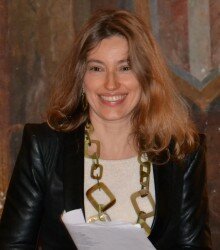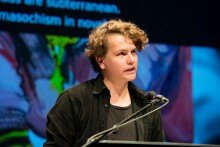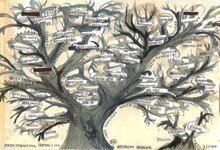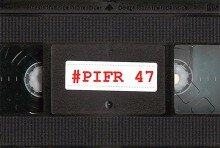
Monica Martinelli was born in Rome, where she still lives while working in the economic-financial department of the Public Services. She obtained a master’s degree in literature as well as in European studies at the Università di Sapienza in Rome. Martinelli writes articles and literary reviews for the Rassegna di letteratura italiana and is editor of the literary magazine I fiori del male. Her first collection of poetry Poesie ed ombre – with an introduction by Walter Mauro – was followed two years later by Alterni presagi. Last year L’abitudine degli occhi appeared through the publisher Passigli with an introduction by Davide Rondoni. Some of her recent poems were published in Gradiva: The international journal of Italian poetry.
Poetry represents to Martinelli the ultimate attempt to communicate, even in times and situations when communication seems almost impossible. It provides a challenge to the self and the reader, for the process to have them both on the same frequency is a difficult and complex one. When it happens, it creates a small miracle. As we are full of unexplored and unperceived sentiments that are waiting for a nudge, poetry serves as a perfect instrument of investigation and interior knowledge. It is a way to discover hidden worlds, looking through the distorted lens of the poet, as Martinelli shows us in the 67 poems of L’abitudine degli occhi (The habitude of the eyes). The images reflected through our eyes make us perceive the things that surround us, and these, in turn, are translated into focus by the poetic word, in an essential and compact form. In Martinelli’s view, poetry is a way to name things which perhaps didn’t have a name yet, and she quotes Heidegger: ‘Poetry is to live near the source, being close to the essence of things’.
On the other hand, it makes perfect sense what Walter Mauro defined, in his foreword to her first poetry book, the ‘sensitive plurality’ as a fundamental medium to translate poetry into reflection, it being the main theme in Martinelli’s work. For there is nothing more autobiographical than poetry, the true and authentic refuge of the mind, in the chaos that surround us. Only by retrieving a precise order of things, by mastering an elaborated poetic language, which we find in Martinelli’s poetry, one can overcome this chaos. And of course the comparison with Giacomo Leopardi here springs to mind.
L’abitudine degli occhi is a modern, contemporary collection of poetry with a sensitive and existential approach. It contains confessions of the self reinforced by a language that is almost physical, for the poet deliberately and frequenly uses scientific terms. She draws an epistemological, detailed map of existence, a reflective journey in which the scientific terms define the individual’s state of mind. We’re reading about the journey that is narrated from a strictly individual point of view, always starting from the lyrical subject, the inner voice of the poet. It reveals her way of looking at life, for everything we voluntarily or involuntarily see is an act of observation. The eyes are the principal organs through which we observe nature, people and the world around us.
The habit of looking is an inconscious act that we can nonetheless try to influence with thoughts and reason. L’abitudine degli occhi examines and probes reality in eight different sections, named after several scientific disciplines: physics, chemistry, geology, biology etc., and they emphasize the states of mind and body of a rare kind of humanity which offers itself with passion and honesty and is never afraid to risk. Because poetry in itself is a game of risking everything and a challenge at the same time.
Bibliography
Poetry
Poesie ed ombre. With an introduction by Walter Mauro. Tracce, Pescara, 2009
Alterni presagi. With an introduction by Plinio Perilli. Altrimedia, Matera, 2011
L’abitudine degli occhi. With an introduction by Davide Rondoni. Passigli, Firenze, 2015
Links
Carteggi Letterari ‘La poesia del giorno’ (Poem of the day), ‘Tu che inghiotti schiuma di promesse’
Review of L’abitudine degli occhi on the blog of Salvatore Sblando
Essay by Lucianna Argentino on Martinelli, ‘L’attimo di una farfalla’







